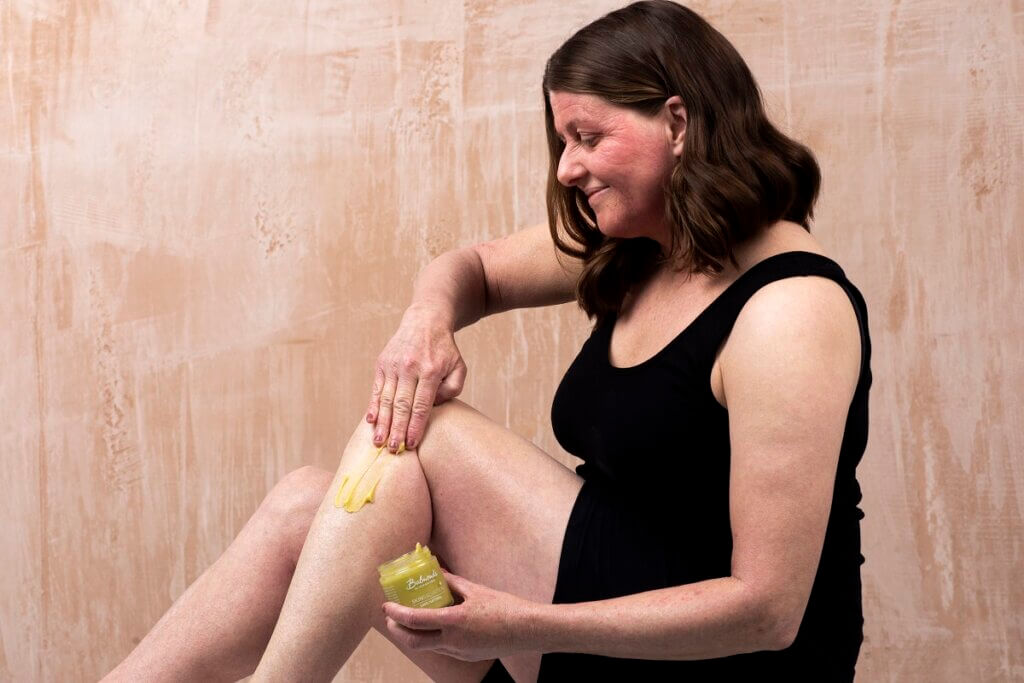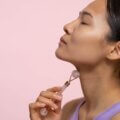I heard someone say this last week and it really struck deep. It was a podcast conversation with a mother discussing her child’s ‘ugly eczema’ and it made me feel so judged, triggered and challenged.
Now I don’t want to get into blaming this mother, I love her podcast and think she’s talented, funny and a very kind person. So I’m not even going to tell you who it was. But I wanted to challenge this knee jerk way we have as a nation of seeing things as ugly whey the don’t look so perfect and healthy.
Because it made me realise I do think my eczema is ugly.
It hurt so badly because deep down I agree with that mother. So what can we do to challenge these unhelpful deep seated wrong beliefs that we have about ourselves and others?

Everyone has a right to their own opinion
If you think eczema is ugly you are not alone, and it’s OK to feel that way. It is painful, red, causes inflammation and irritation and prevents skin from looking clear, smooth and perfect. But what is this obsession with perfection?
A recent survey by the National Eczema Association revealed that more than 30% of people with atopic dermatitis were diagnosed with depression and/or anxiety. Eczema and skin conditions have a very bad effect on your mental health. You are not alone if you feel this way.
The beauty industry fuels this, and it’s NOT ok. It’s not your fault you have eczema. Try to let it go, it’s not your eczema. I know I am still struggling on some level because I’m so attached to my eczema? I know I scratch, almost as a way of soothing and relief when I’m stressed and tense. If I’m anxious I’ll get itchy.
But it’s not my eczema… can I stop and pause and find safer, kind ways to self soothe instead of having a darn good scratch? It does feel so good scratching though.
It’s not my eczema
It’s something I constantly struggle with, that feeling that it owns me and I own it. It is my eczema. That I will always have it, never be free of eczema. The language we use is so powerful in these kinds of situations.
Can you let go of this phrase, my eczema this and my eczema that. Instead say things like
- Sometimes I can be at risk of eczema
- Oh look, there is some eczema showing at the moment, what can I do to soothe it?
- Having sensitive skin can mean I am susceptible to getting rashes and eczema
- Eczema is a sign that your body is trying to tell you something.
- Consider that this early warning sign that you body isn’t happy could mean you have to live a cleaner, healthier, simpler life. This could be a huge benefit in the long run.
- Experiencing eczema has made me more aware of what I put on my body and what i put into my body
- I am listening to the largest organ in my body – my skin is my friend
Stop owning it and start listening to what it’s trying to tell you. It’s so complex because the irritation could be caused by so many things. Now begin the detective journey of your life to discover what you triggers are what can help soothe the skin and avoid eczema flare ups.
Why do we think eczema is ugly?
- The beauty industry thrives on making us feel we are not good enough and need this product or that cleanser to achieve skin brilliance and perfection.
- Beautiful people sell products, everywhere. This has started to change, but until recently most advertisements for everything featured predominantly perfect white people.
- Conditions such as eczema, asthma, allergies, disabilities etc. are rarely seen in TV programmes, documentaries, sitcoms, chat shows, films, any media. And if they are it’s often a weak, laughable or unlikeable character.
- On a regular basis I receive unsolicited but often well meaning advice on how I can fix my skin. It comes from a good place but it makes the person on the receiving end know they are not good enough in their current state. You see the imperfections and they bother you. So you suggest coconut oil, or ask personal questions about what I’m doing to get better.
Imagine living life and never ever seeing anyone who looks like you, because I can imagine it very well.
Ways I try to embrace, accept and love my skin
I’m by no means smashing this, I catch sight of myself sometimes in a mirror and am reminded of what I look like. It hurts every time, it hurts anyway, but seeing the visible carnage of my topical steroid withdrawal damaged face is a constant torment. Here are a few things I do to help my body image;
- Positive affirmations – My skin is doing what it can, my skin is healing, I am beautiful, my skin does not define me
- Fake it (and flake it) till you make it – saying these positive things is better than saying negative mean things to yourself. Say kind things out loud even when you don’t mean it.
- Speak to yourself how you would speak to a baby, your daughter, your young niece.
I know this sounds naff, but try it. I cried and cried when I tried at first because I realised that I hated my self. I hated my skin and it hurt me so deeply to realise how many years I had been beating myself up.
This is still a work in progress for me. Letting go of constantly needing to fix my skin, and instead embracing who I am right now. Accepting how I look, that I am going to heal and I am doing what I can to get better. I don’t need to be constantly striving, I am just doing one small thing at a time. And sometimes I am not doing anything at all to heal. It’s OK to just be, to just experience discomfort on your skin and not do anything about it. It’s exhausting trying to heal.
What if I always have eczema on my skin. Can I learn to be content with how I look now? When it’s not great and my eyebrows have fallen out again.
Who needs eyebrows anyway!
I’d love to hear from anyone who battles with these conflicting thoughts. Share you comments below please and be kind please or I won’t approve your comments.
You may also be interested in reading
- Just F**k off! – a message to people who comment on anyone’s appearance
- Kinder things to say to someone with eczema and 8 reasons not to comment at all
- Responding to difficult comments
- We need to see disabilities, allergies etc. as normal
- Buy The Shape of Skin – poems from the heart, from pain, anger, healing and acceptance











Leave a Reply